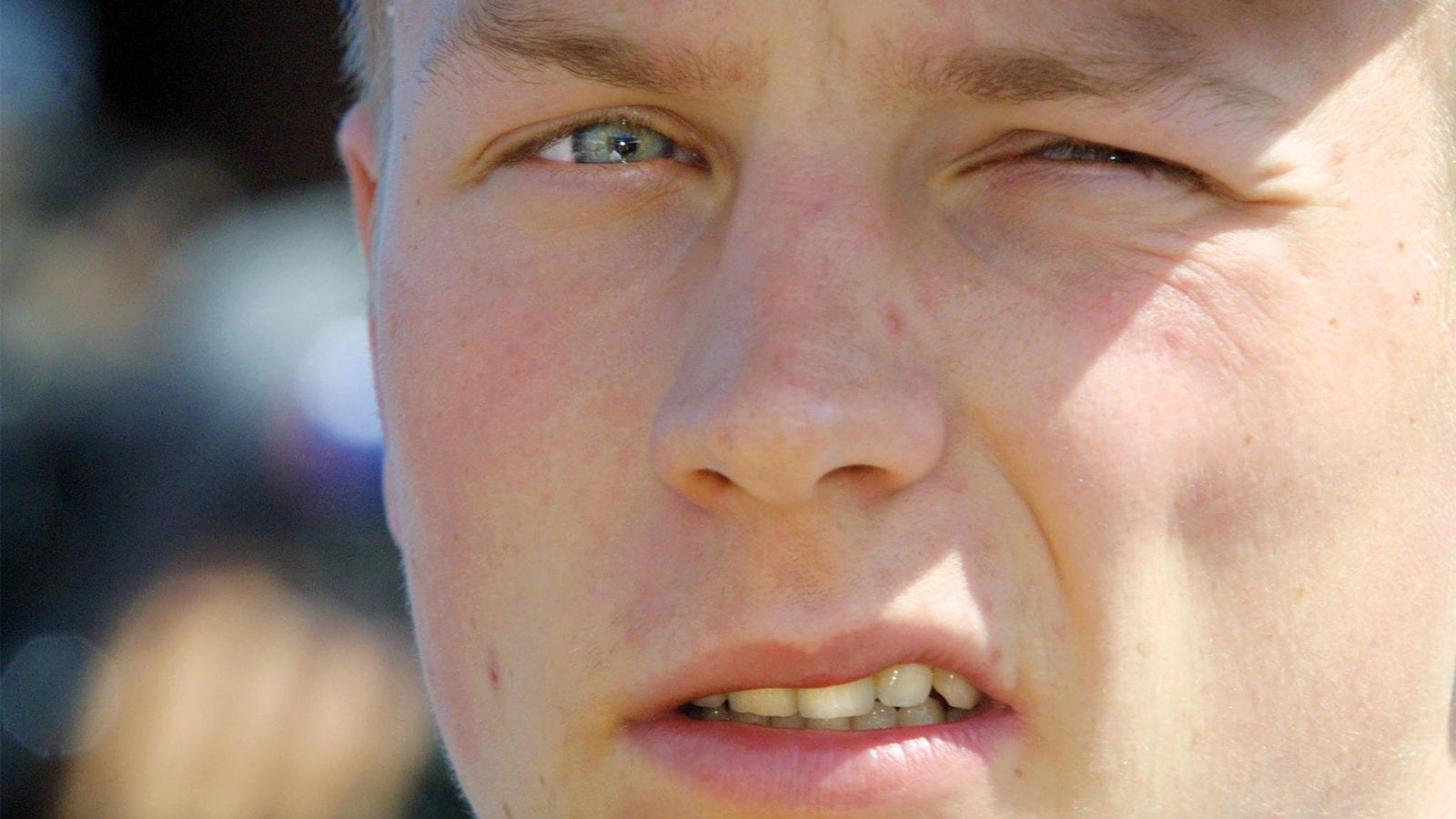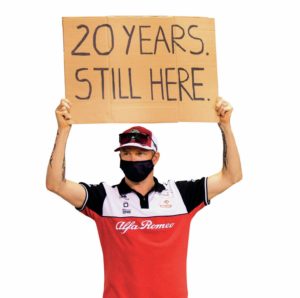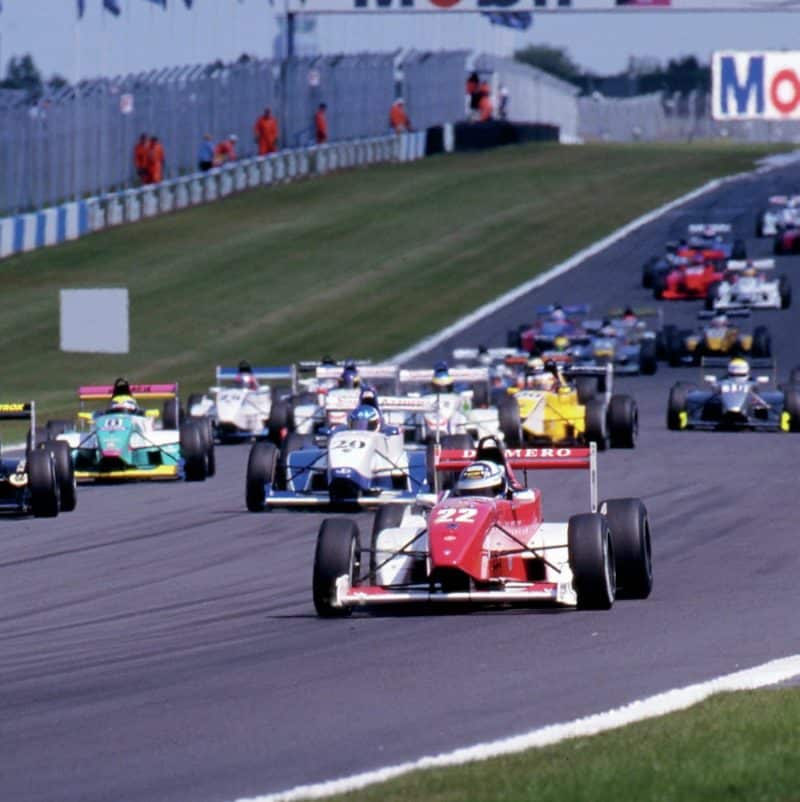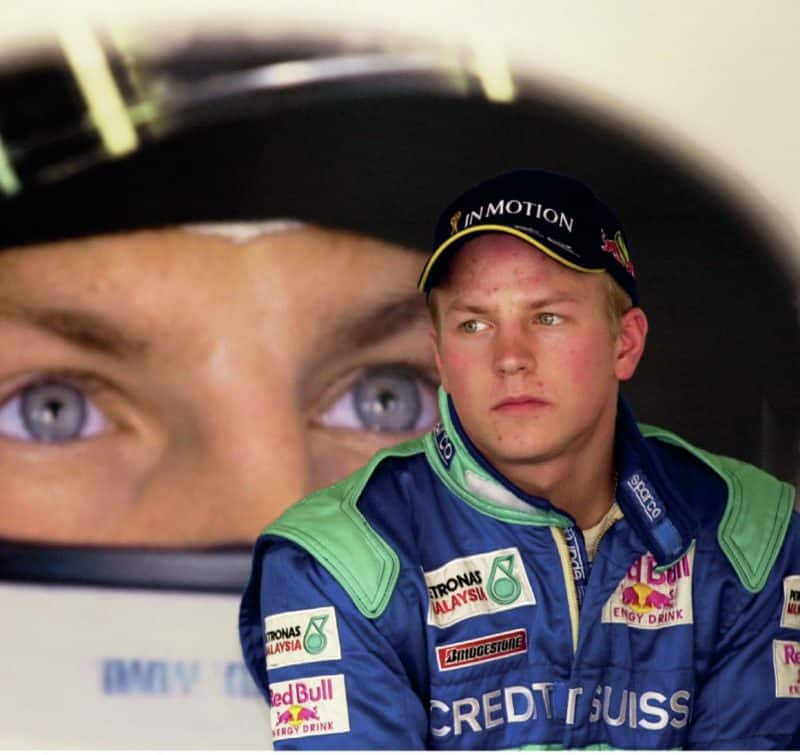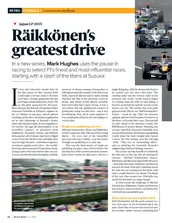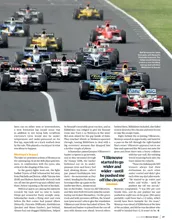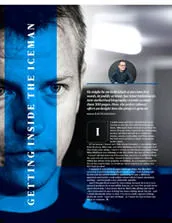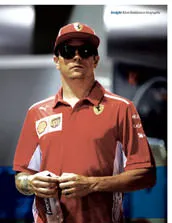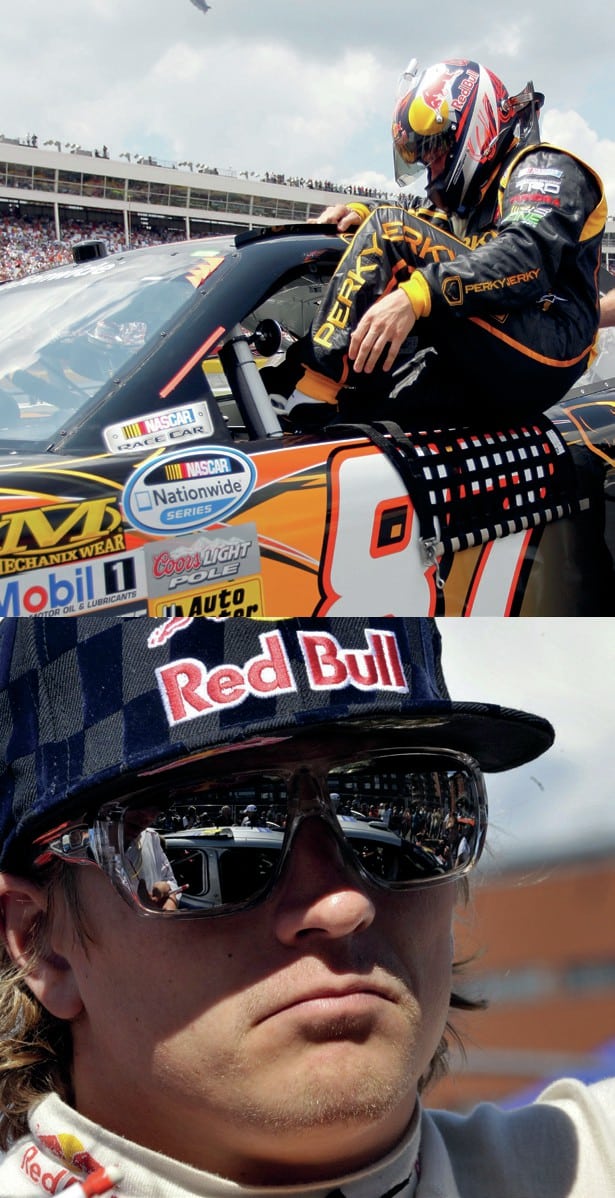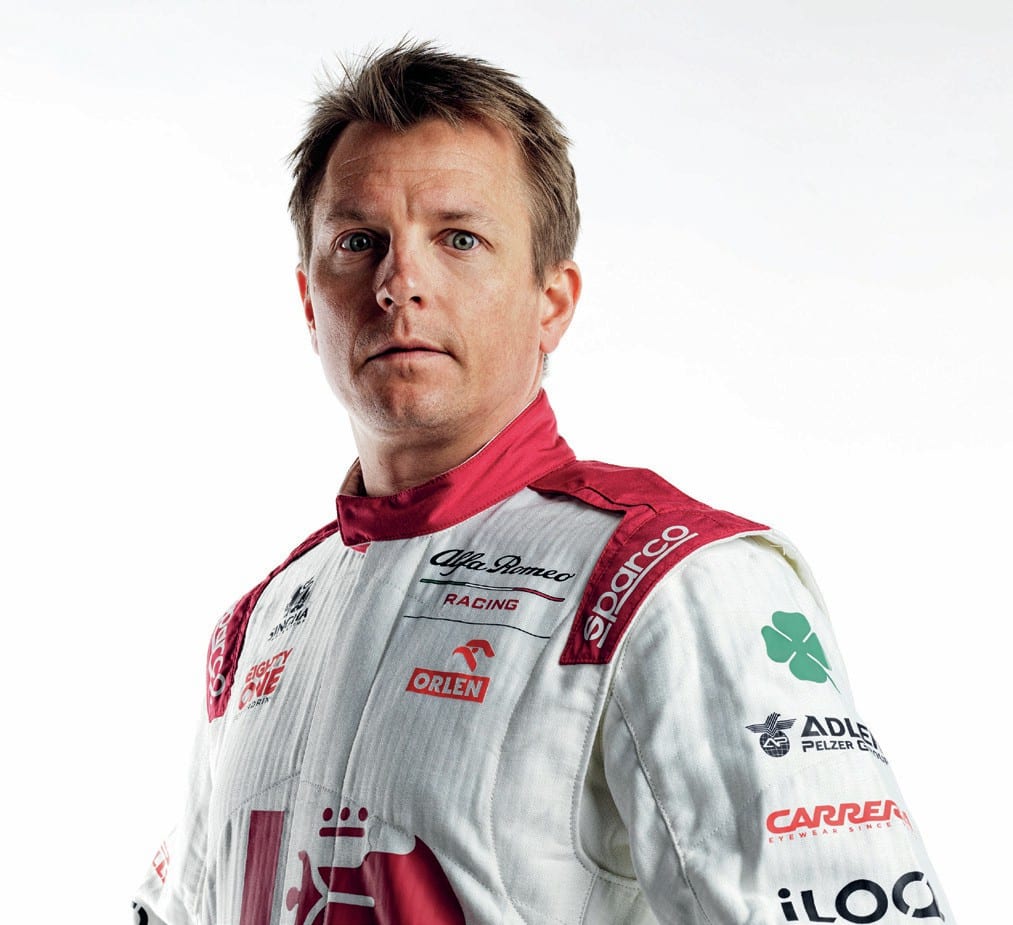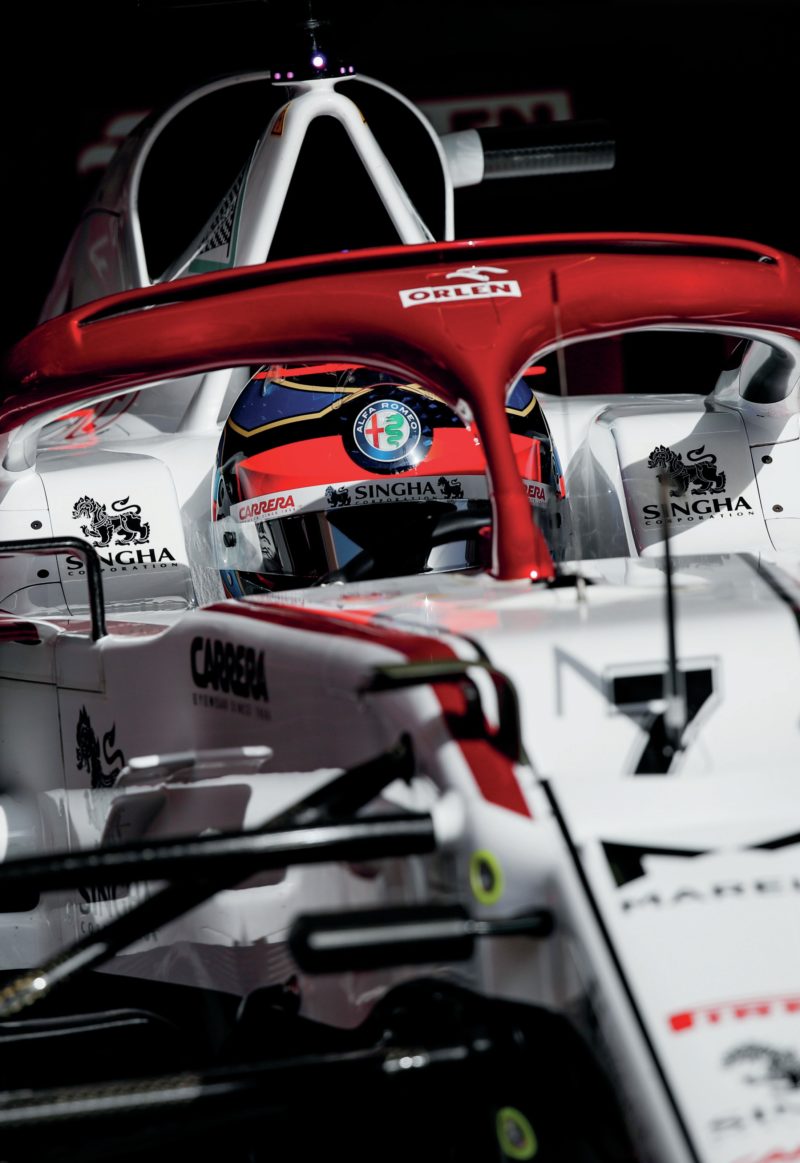McLaren had to buy Räikkönen out of a three-year deal, providing Sauber with the funds with which to construct a wind tunnel.
In only his second year out of Formula Renault, Kimi was to replace Häkkinen, a two-time world champion, and a national hero in Finland. The pressure was immense.
“I never really thought about it,” he insists. “That helps a lot. If you think certain things too much, it gets difficult. Obviously, it was different, it was a bigger team. The first year in most of the races we had issues, but it was great to get to know the team.”
“He pulled off a feat worthy of his hero James Hunt to steal the title”
In 2002 Ferrari was utterly dominant, and while Räikkönen logged several podiums, he had to wait until Malaysia the following year for his first victory. A string of second places kept him in the 2003 title hunt, and after some frustrating retirements he ultimately lost out to Michael Schumacher.
“Obviously there were errors. How much was it, two points or something in the end? If you take any of those or the issues that we had with the car, we could have won easily. But then we only won one race, and I don’t know how many wins Michael had. We were definitely not the fastest, but we were more consistent. I was doing well with what we had, and we were up there all the time.”
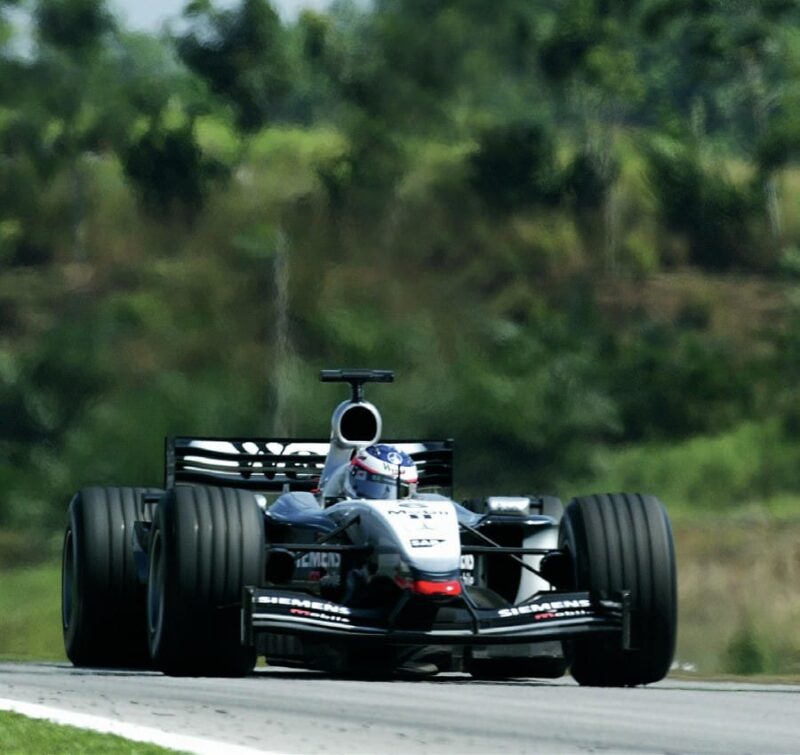
A first win came here in the Malaysian GP in 2003 for McLaren
Mark Thompson/Getty Images
In 2005 Räikkönen went through a similar experience. He won seven races, but lost the title to Fernando Alonso.
“We would have had plenty of wins if it didn’t keep breaking down that often. For sure that year was more painful, because we had the speed. But it’s racing, you have to finish.”
Despite his occasionally wild exploits off-track Kimi got on well with Dennis: “People always talked that we had this and that, and for sure we had some disagreements, but outside of that we always had a good relationship. He was not a fan of some things that I did, but it wasn’t like after that we had a bad relationship. We had some arguments about certain things, but that’s how it goes.”
For 2007 Räikkönen moved to Ferrari, replacing the retiring Schumacher. He won first time out in Australia, and was the main opposition to Alonso and rookie Lewis Hamilton at McLaren. However, switching from Michelins to that year’s control Bridgestones wasn’t easy.
“I noticed straight away in testing that the cars were different, from McLaren to Ferrari, but also the tyres. It took a long time to figure it out. We won the first race pretty easily, but at that circuit the issues I was struggling with weren’t affecting me that much.
“We had some retirements, and then the further we went, the better it started to get. We had a very fast car, and we managed to maximise a lot of things. Probably the crucial race was in Fuji. We got some crazy penalty because we changed the tyres, and we were put on the back. At least I managed to be in third place. Then there were a couple of races to go, and we did well in those ones…”
In fact he pulled off a feat worthy of his hero James Hunt, coming from 17 points behind (10 points for a win) to steal the title from Alonso and Hamilton with wins in the last two events.
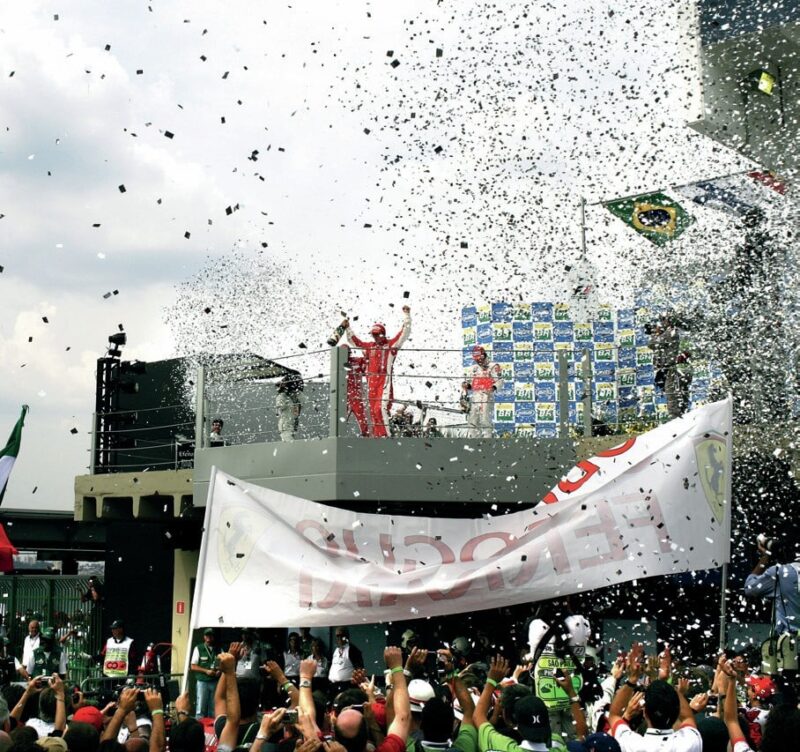
Victory at São Paulo in 2007 gave Räikkönen his sole F1 title
Darren Heath/Getty Images
In 2008, Massa seized the initiative at Ferrari, and Räikkönen found himself supporting the Brazilian’s title campaign. Then at the end of 2009 he was caught in a typical Ferrari three-into-two scenario as he was eased out to make way for Fernando Alonso.
Was that frustrating given that he’d earned the team a world championship just a couple of years earlier?
“No, not really. I think what I was more disappointed about was how they handled it, because I found out long before what they had done. Then when I spoke to the big bosses, they were not saying it, they were saying completely the opposite, even though I knew. ‘We promise you it’s not happening.’
